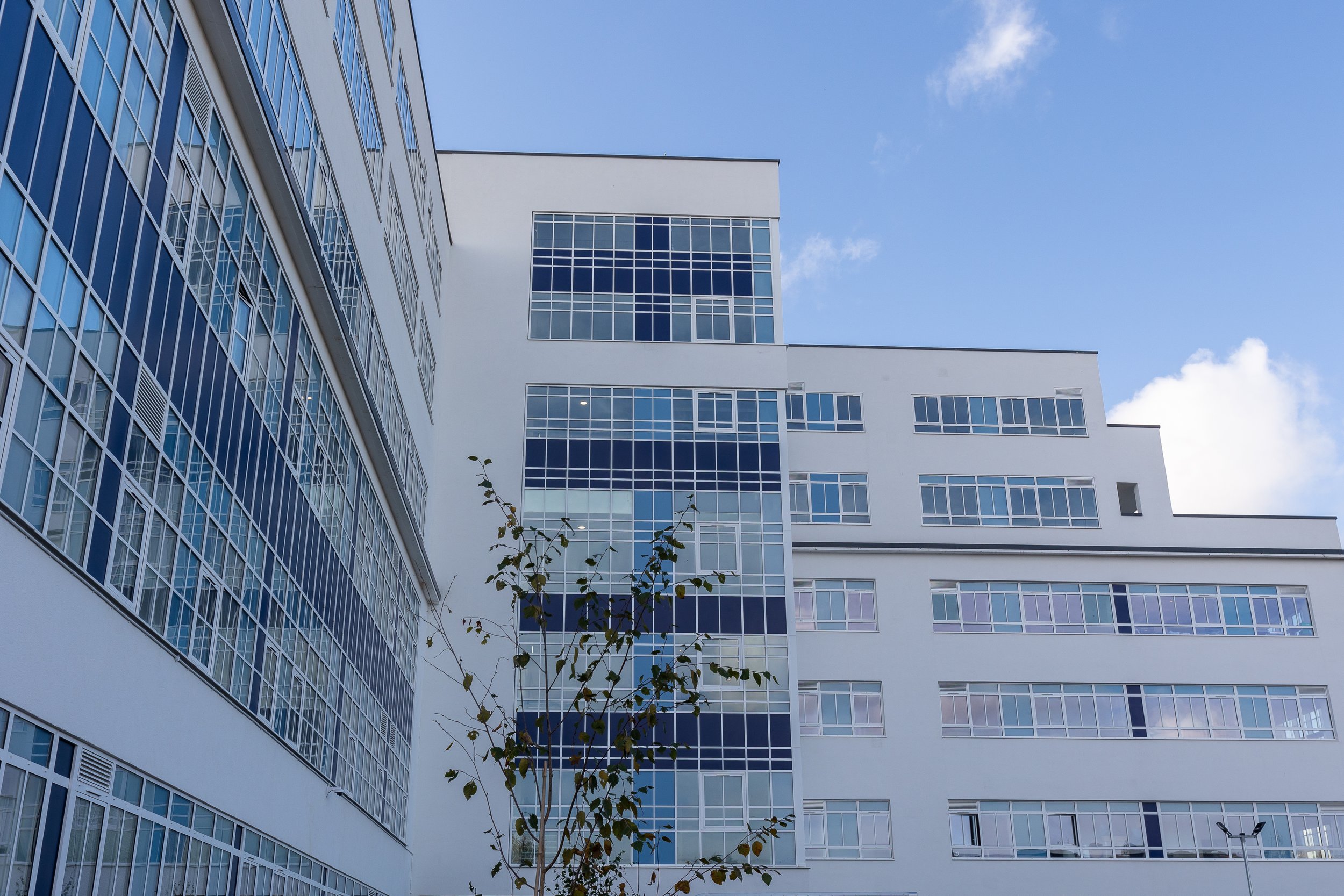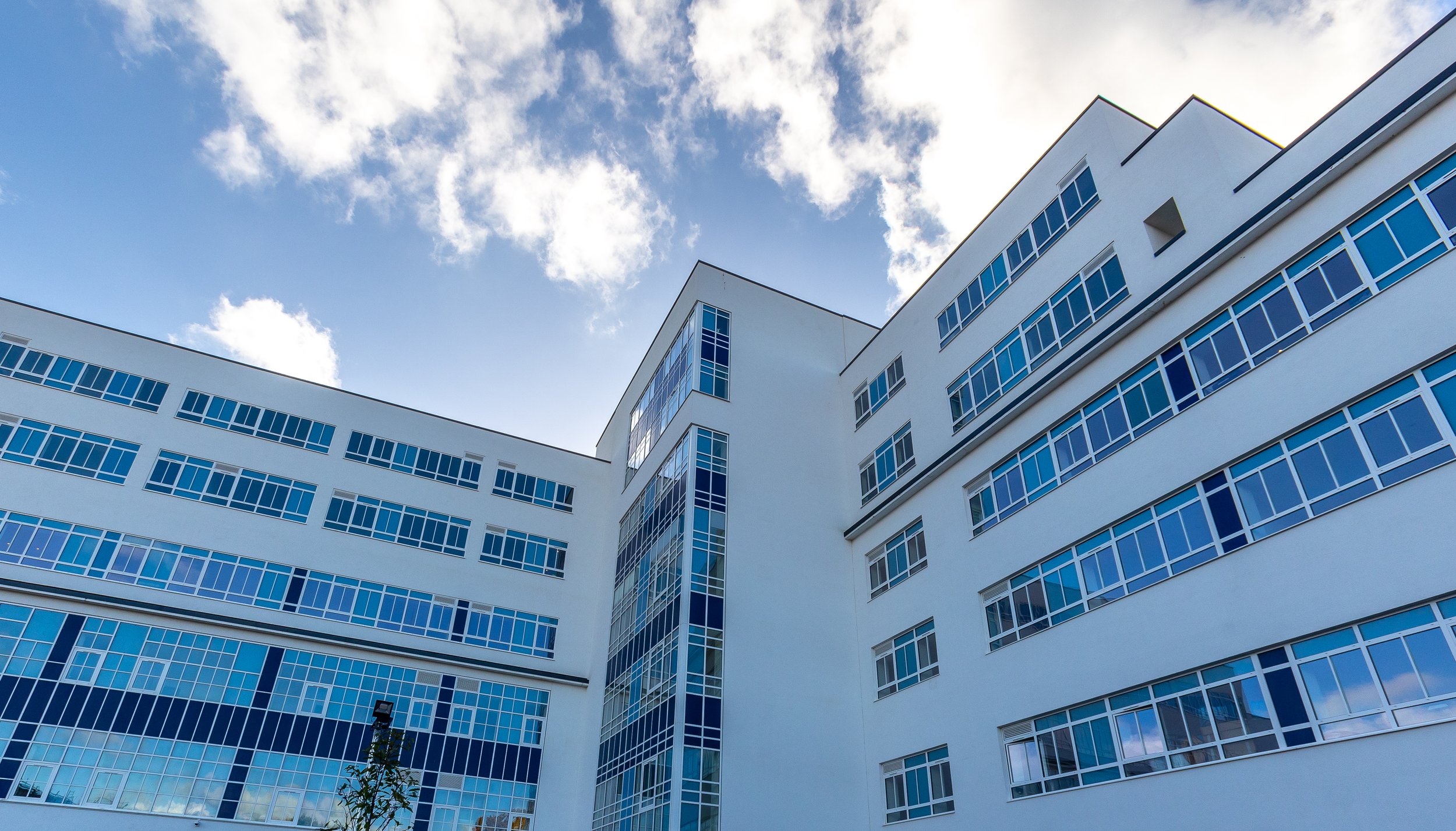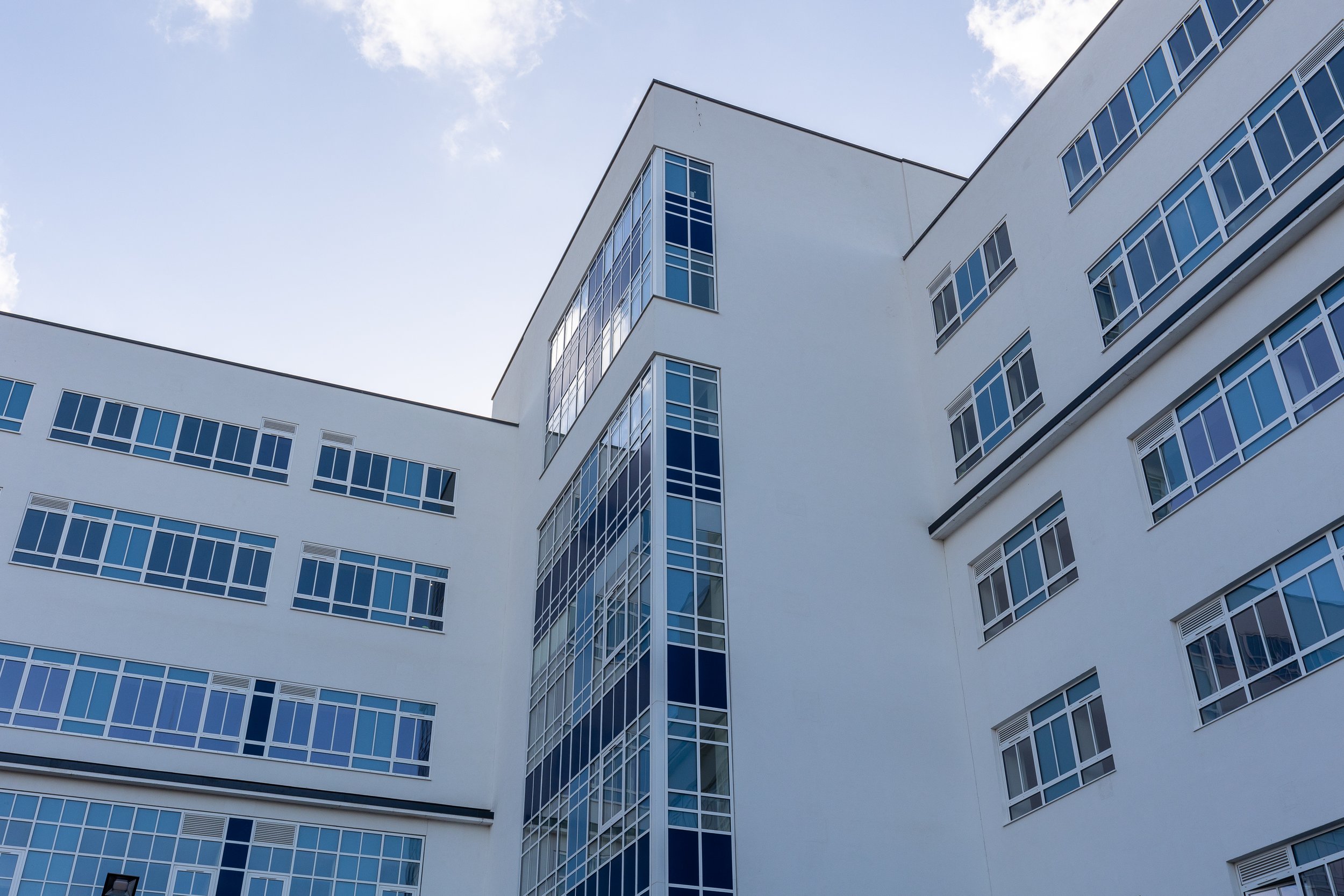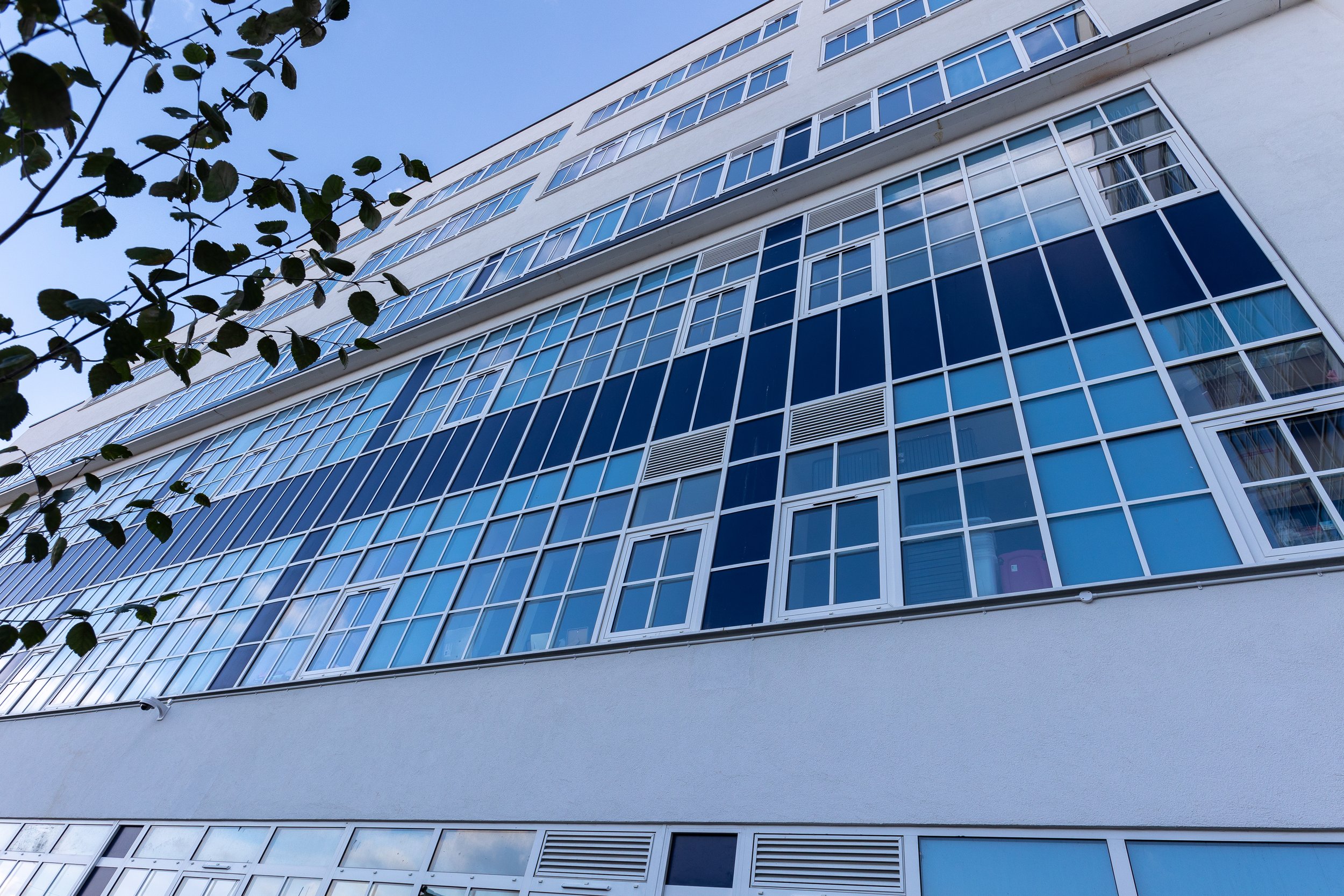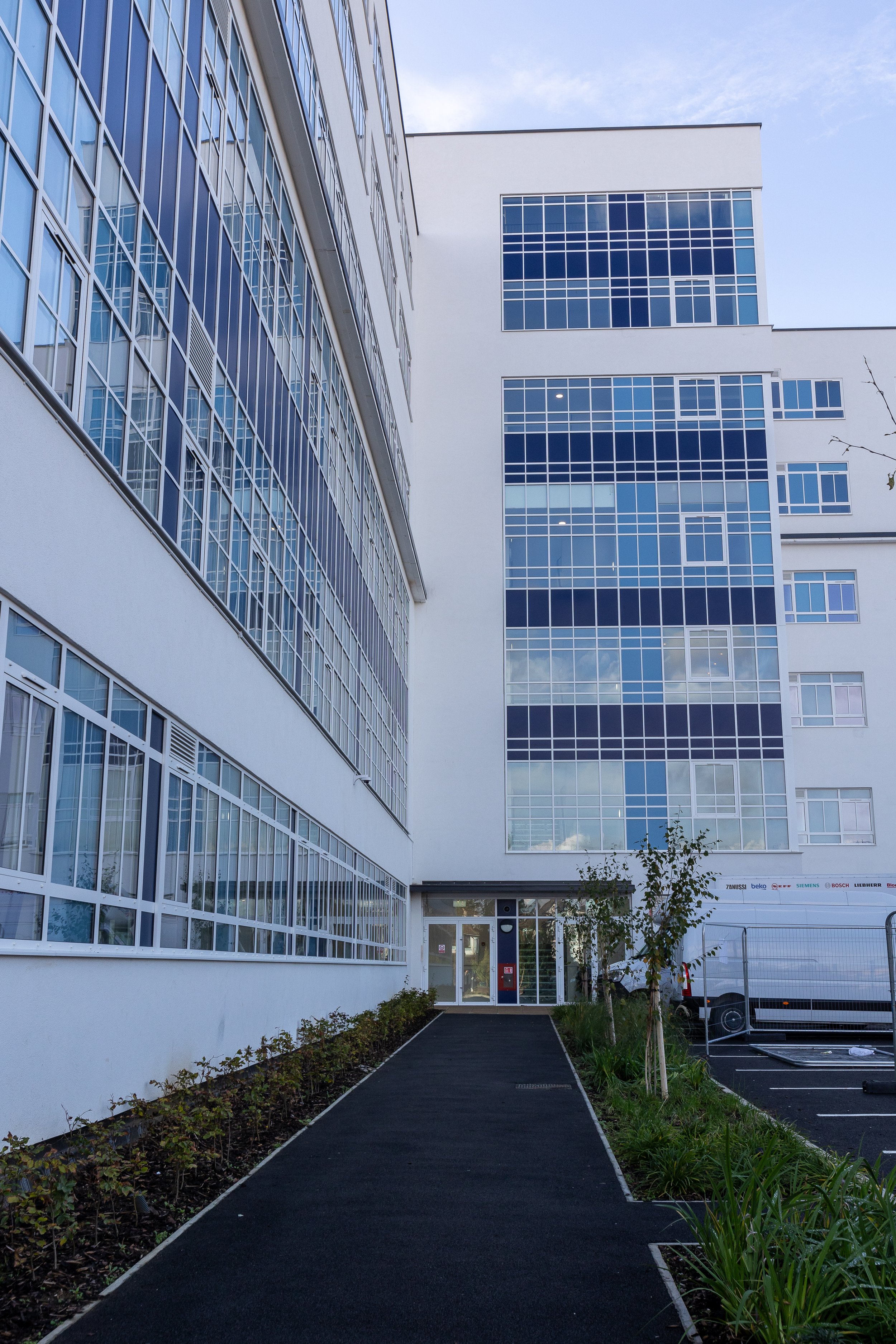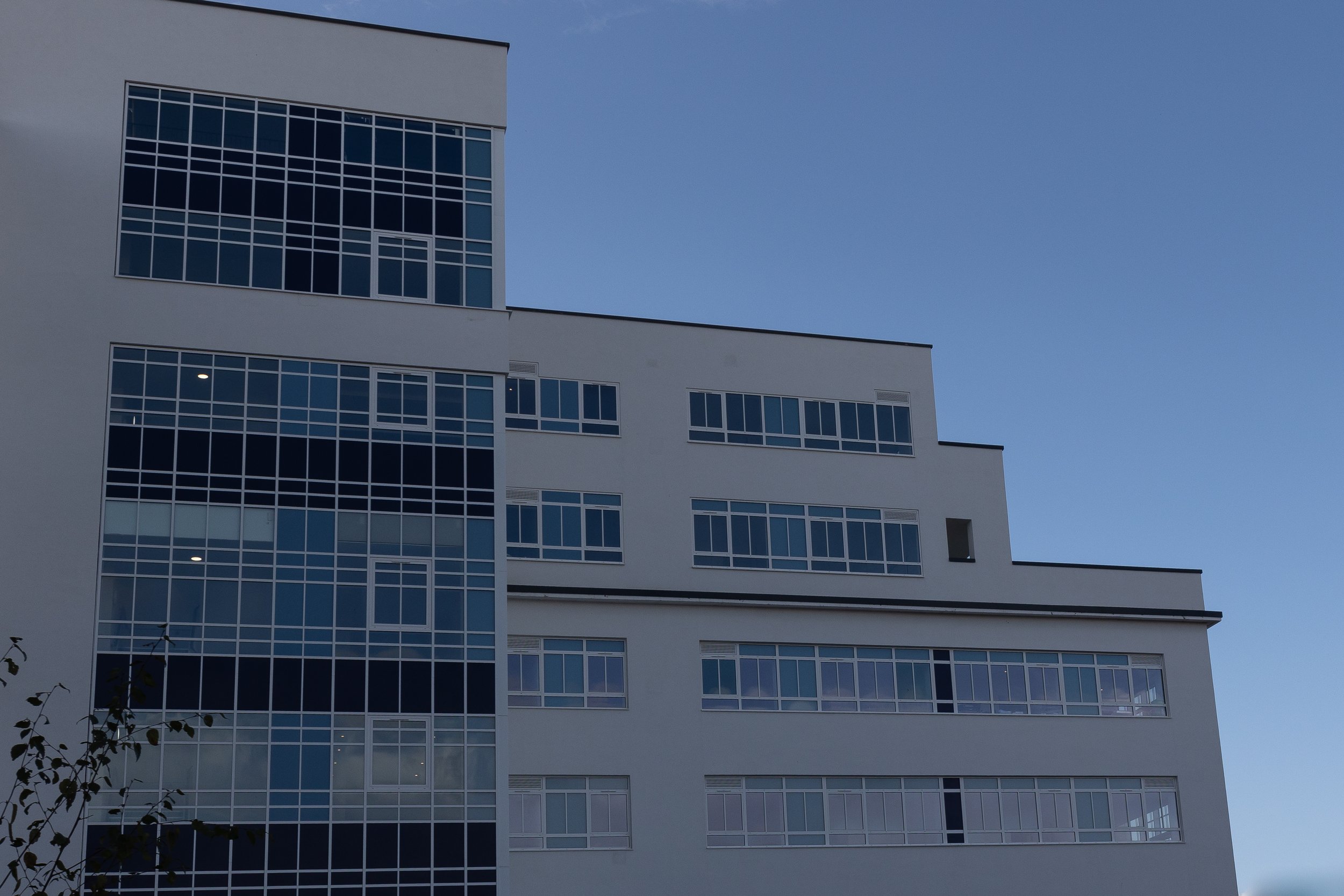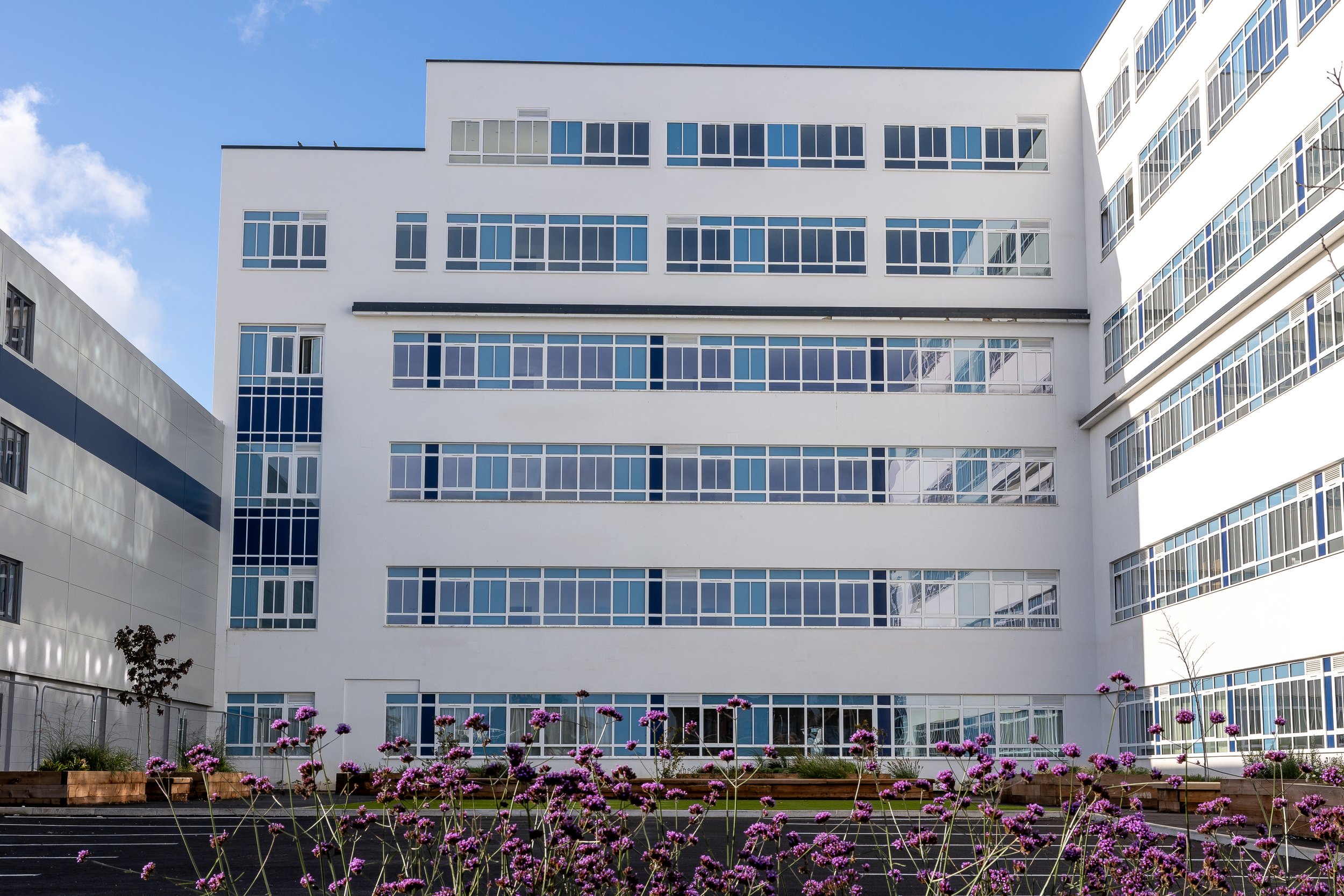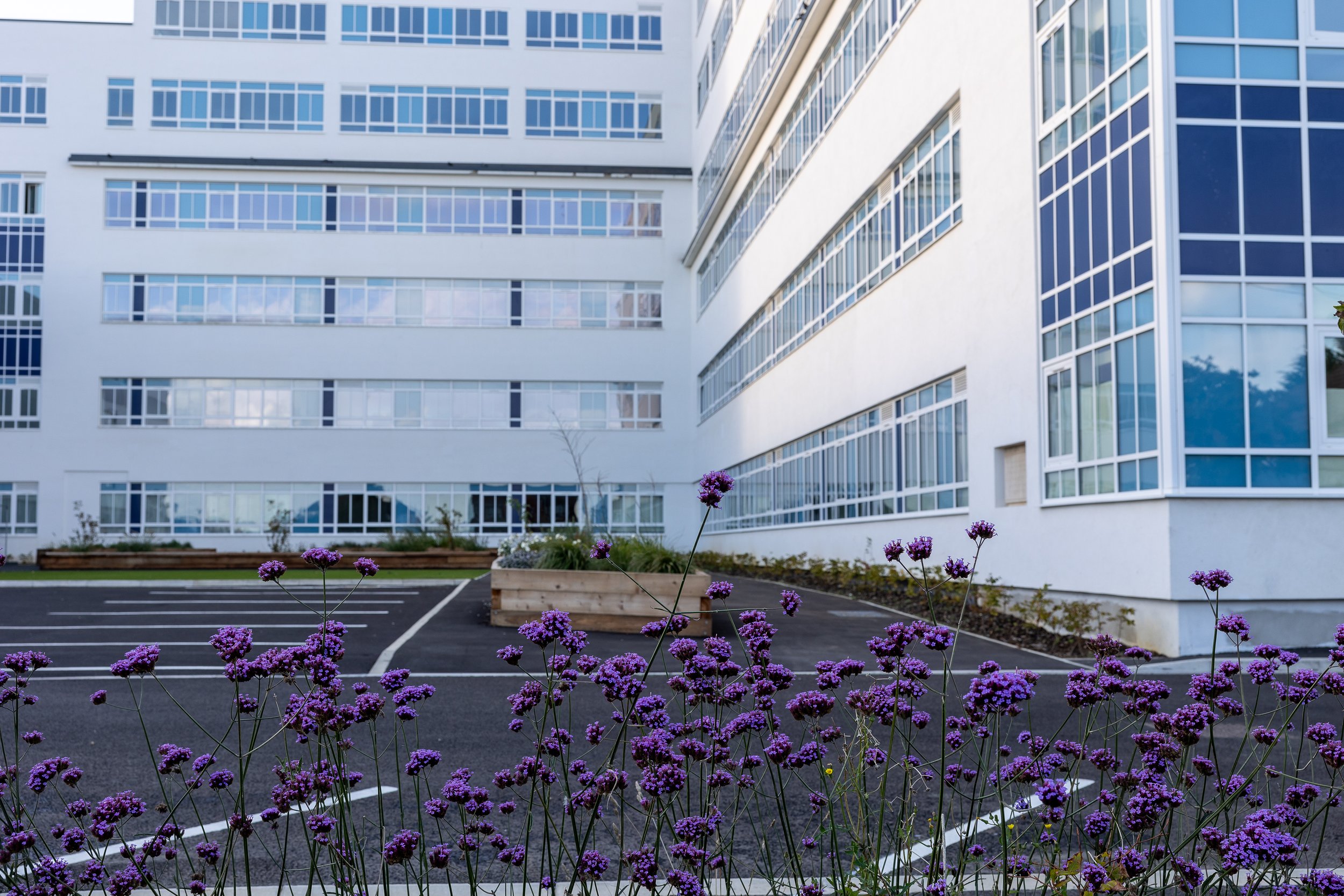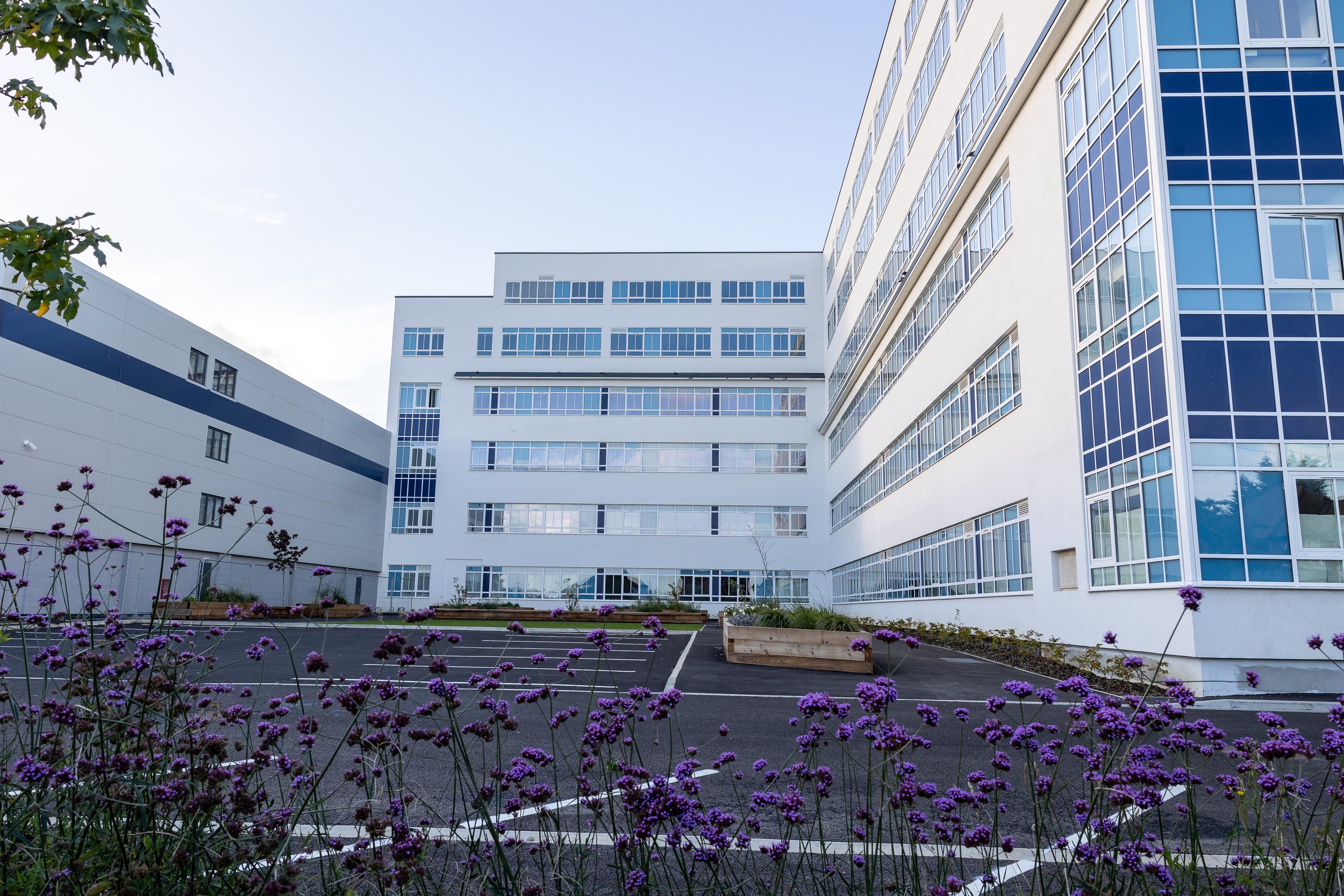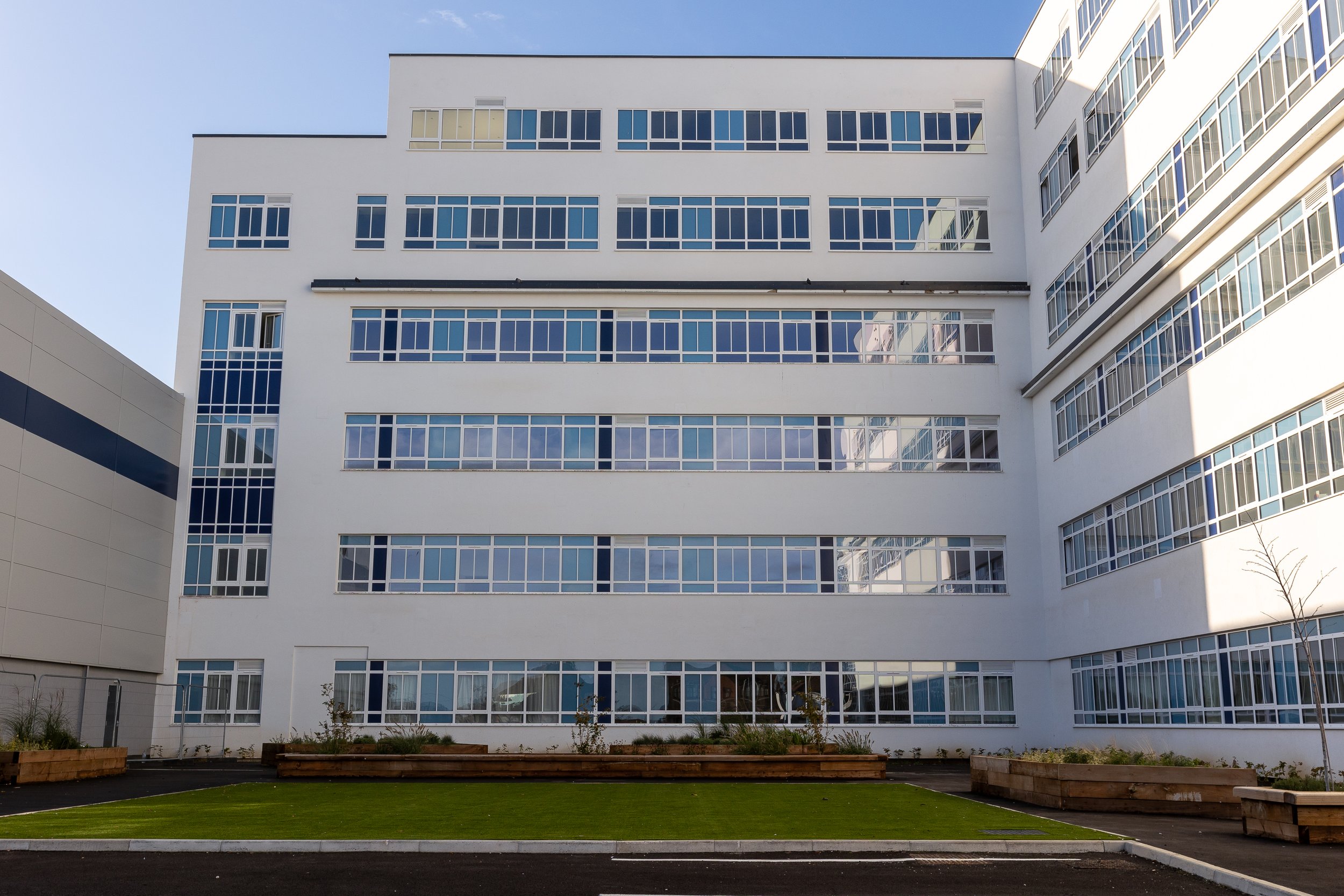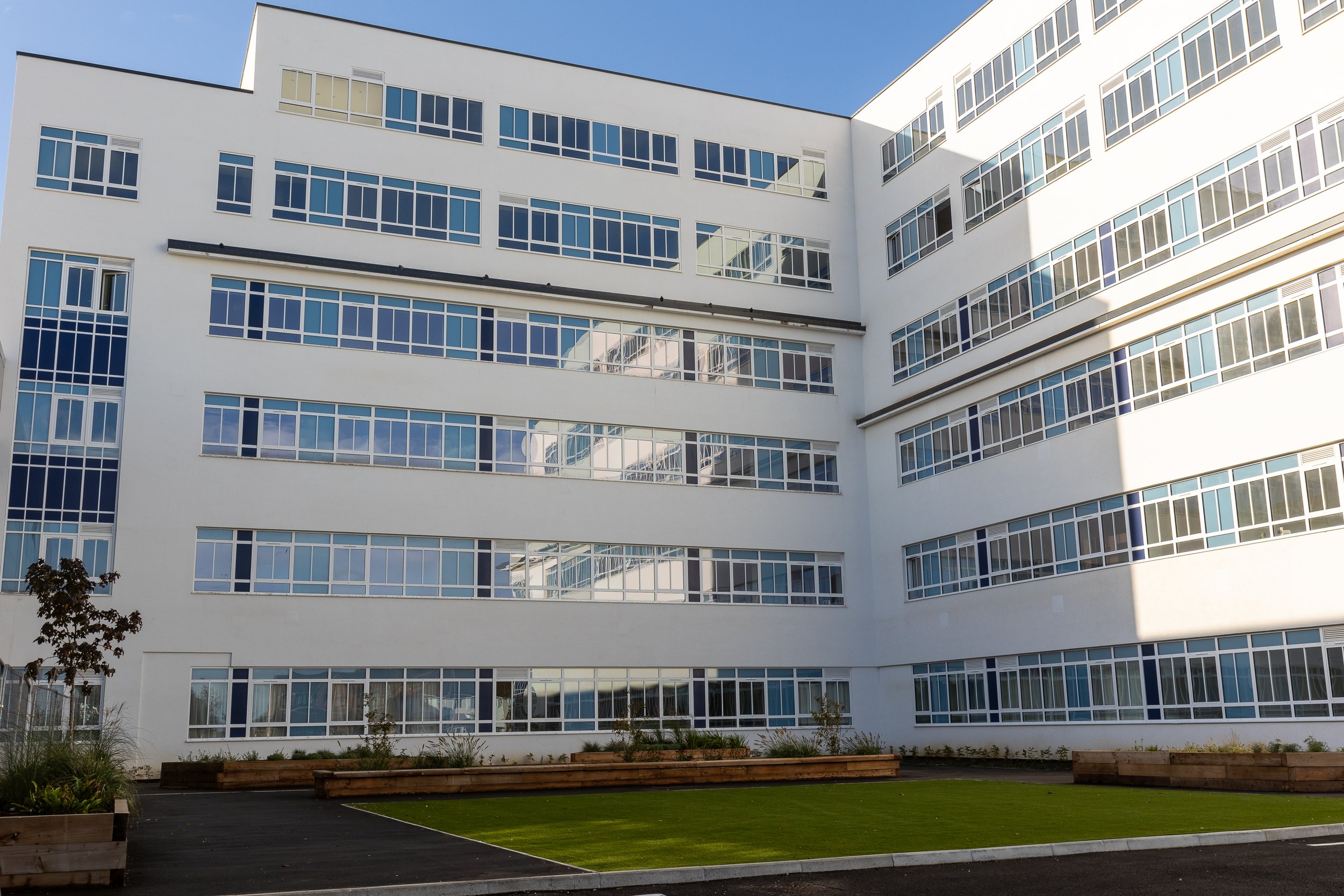HKR Architects delivers office to resi conversion of former Mothercare HQ to provide affordable homes
The historic art deco former headquarters of Mothercare has been successfully converted into much needed affordable new homes for the local community.
Situated in North Watford, the 1918 building, which was originally Yeatman’s Sweet Factory, has been converted into 145 new homes under permitted development rights, with a Class AA upward extension which included 22 additional units.
HKR Architects worked closely with key partners, including BYM Residential, who initially purchased the building from Mothercare and HGH Consulting. The former 100,000 sq. ft. HQ has since been sold to Watford Community Housing, who will market the homes to those working or seeking work locally.
Kola Ojeyomi, Director of HKR Architects comments, “The conversion of this prime office HQ has enabled us to restore this building to its art deco heritage, which has been a key part of Watford’s history for over 100 years, whilst providing much needed affordable homes that set high standards in sustainability and design.
“With a strong focus on contemporary and adaptable design we have been able to reconfigure this building and increase the number of homes from the initial 110 one and two bed units, to 145 spacious, naturally lit one and two bedroom apartments. Materials have also been used which make a positive contribution to the surrounding area.
“We have also ensured sustainability is a key priority throughout with solar panels incorporated into the roof design, increased insulation and double-glazed windows which have been arranged to further emphasize the horizontal character of the building.”
Through the design concept, the original shape of the building didn’t lend itself to residential use so partial demolition of two sections of the existing building took place along with redesign of the existing façade which was made up of large areas of glazing and could not accommodate new residential partitions inside.
HKR designed metal framed back painted glass panels which look the same as an existing window and match the glazing in colour but allow the partitions to be hidden behind as well as reduce solar heat for the apartments. The walls have also been covered in a white render to preserve the character of the existing building.
Landscaping has been designed to complement the art deco architecture, with a communal garden area to the south providing an attractive environment and offering greater versatility in terms of use and function. There is also space for growing fruit and vegetables.
Pedestrian links allow for safe, attractive and permeable routes through the development while electric vehicle charging points and vehicle car club allow for more sustainable travel.


